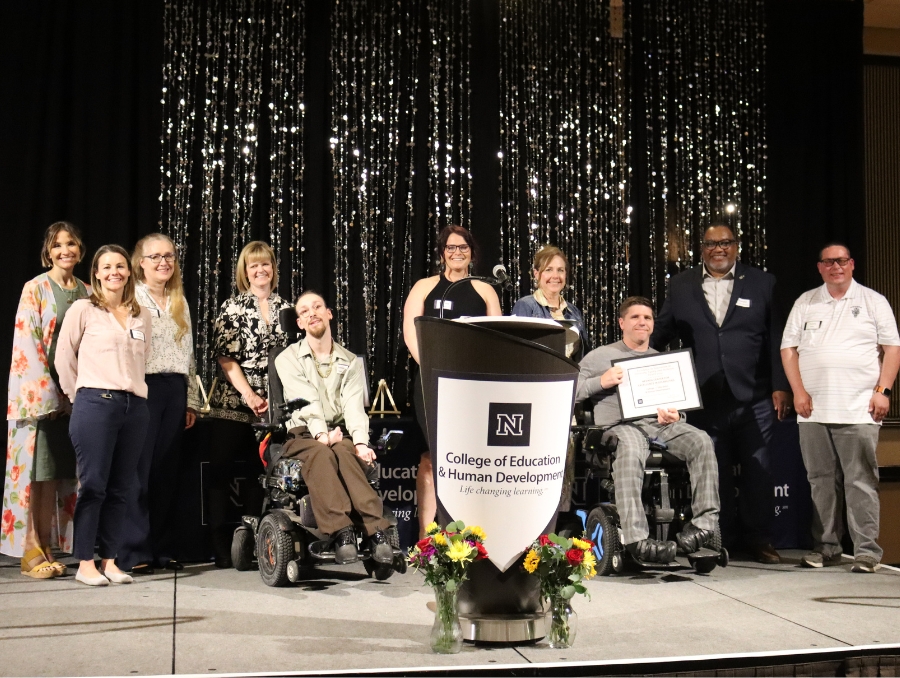David Blight, one of the nation's foremost Civil War historians, will be on campus on Thursday, Feb. 9 for a talk entitled, "The Civil War in the Civil Rights Era."
Blight, a professor of history at Yale University and author of the recently released, "American Oracle: The Civil War In The Civil Rights Era," will speak at 7:30 p.m. in the Wells Fargo Auditorium (Room 124) in the Mathewson-IGT Knowledge Center as part of the Hilliard Lecture Series.
Blight's work has provided modern historians with thought-provoking ways to connect the worlds of the 20th and 21st centuries with a 19th century event that continues to define America.
Just one example occurred earlier this week here at the University.
Alicia Barber, director of public history and the oral history program at the University, said that earlier this week, "I taught a piece by David Blight in my Public History class about the importance of remembering slavery after the Civil War. That course discusses changing interpretations of the past, and how history is conveyed to the public."
On these fronts and many more like them, Blight has played an unquestionably central role in defining, in his own words from "American Oracle," "the compelling question of how the United States, to an important degree, is the stories it tells itself about its Civil War and its enduring aftermath."
Blight joined Yale in 2003 as professor of history. In 2004 he was named director of the Gilder Lehrman Center for the Study of Slavery, Resistance and Abolition at Yale.
Blight is the author of several books that have been recognized as some of the most important works ever written about the Civil War. "American Oracle" (Harvard University Press, 2011), has been called by Ken Burns, the award-winning filmmaker, a "superb book" that "masterfully unites two distant but inextricably bound events with insightful dissection of the works of our best writers." Burns added that "the ghosts of the Civil War never leave us, as David Blight knows perhaps better than anyone."
"A Slave No More: Two Men Who Escaped to Freedom, Including Their Narratives of Emancipation," (Harcourt, 2007), combines two newly discovered slave narratives in a volume that recovers the lives of their authors, John Washington and Wallace Turnage, as well as provides an incisive history of the story of emancipation. In June 2004, the New York Times ran a front page story about the discovery and significance of these two rare slave narratives.
Blight is also the author of "Race and Reunion: The Civil War in American Memory" (Harvard University Press, 2001), which received eight book awards, including the Bancroft Prize, the Abraham Lincoln Prize, and the Frederick Douglass Prize as well as four awards from the Organization of American Historians, including the Merle Curti prizes for both intellectual and social history.
Other published works include a book of essays, "Beyond the Battlefield: Race, Memory, and the American Civil War" (University of Massachusetts Press, 2002); and "Frederick Douglass's Civil War: Keeping Faith in Jubilee" (LSU Press, 1989), as well as six other books.
Blight is also a frequent book reviewer for the Washington Post Book World, the Chicago Tribune, the Los Angeles Times, the Boston Globe and other newspapers, and has written many articles on abolitionism, American historical memory, and African American intellectual and cultural history. He is one of the authors of the bestselling American history textbook for the college level, "A People and a Nation" (Houghton Mifflin). He is also series advisor and editor for the Bedford Books series in American History and Culture, a popular series of teaching books for the college level. Blight lectures widely on Douglass, Du Bois, and problems in public history and American historical memory. He teaches summer institutes for secondary teachers and for park rangers and historians in the National Park Service, devoting a good deal of time to these and many other public history initiatives.
Blight has also been a consultant to several documentary films, including the 1998 PBS series, "Africans in America," and "The Reconstruction Era" (2004). Blight has a Ph. D. from the University of Wisconsin-Madison, and did his undergraduate degree at Michigan State University. He has also taught at Harvard University, at North Central College in Naperville, Illinois, and for seven years was a public high school teacher in his hometown, Flint, Michigan. He was also senior Fulbright Professor in American Studies at the University of Munich in Germany in 1992-93.
Blight was elected as a member of the Society of American Historians in 2002. Since 2004 he has served as a member of the Board of Trustees of the New York Historical Society and the board for African American Programs at Monticello in Charlottesville, Virginia. He also serves on the board of advisors to the Abraham Lincoln Bicentennial Commission and is involved in planning numerous conferences and events to commemorate both the Lincoln anniversary and the sesquicentennial of the Civil War. In his capacity as director of the Gilder Lehrman Center at Yale, Blight organizes conferences, working groups, lectures, the administering of the annual Frederick Douglass Book Prize, and many public outreach programs regarding the history of slavery and its abolition. Blight is also an advisor to the September 11 Memorial and Museum in New York.
(Source: University research, Yale University Department of History website.)










